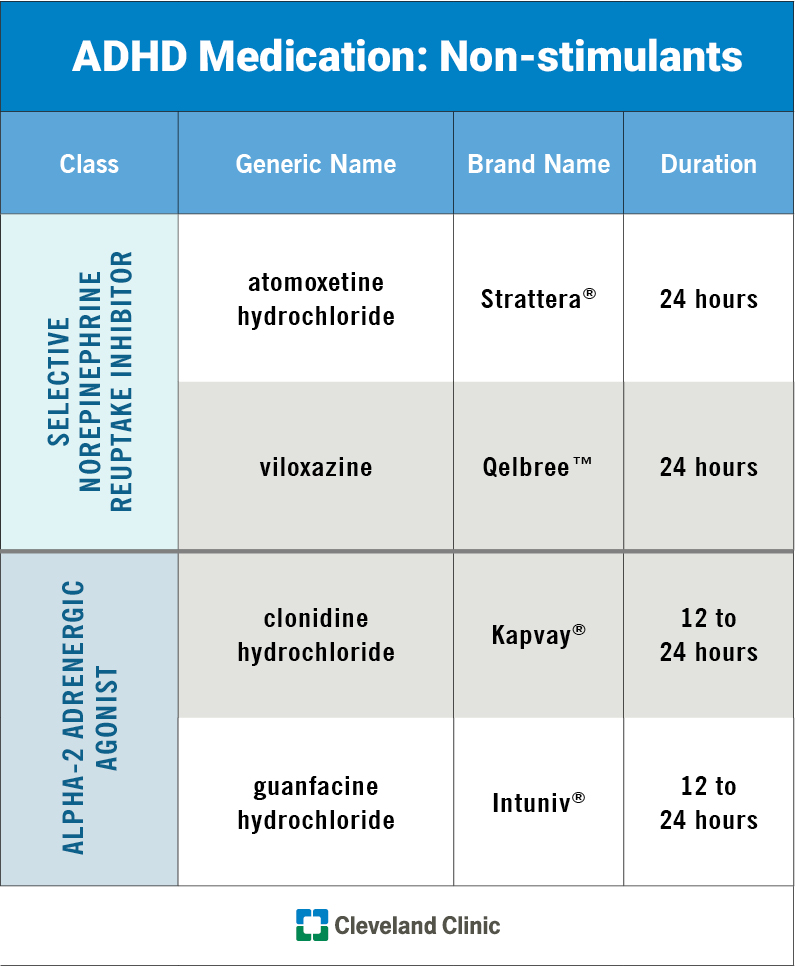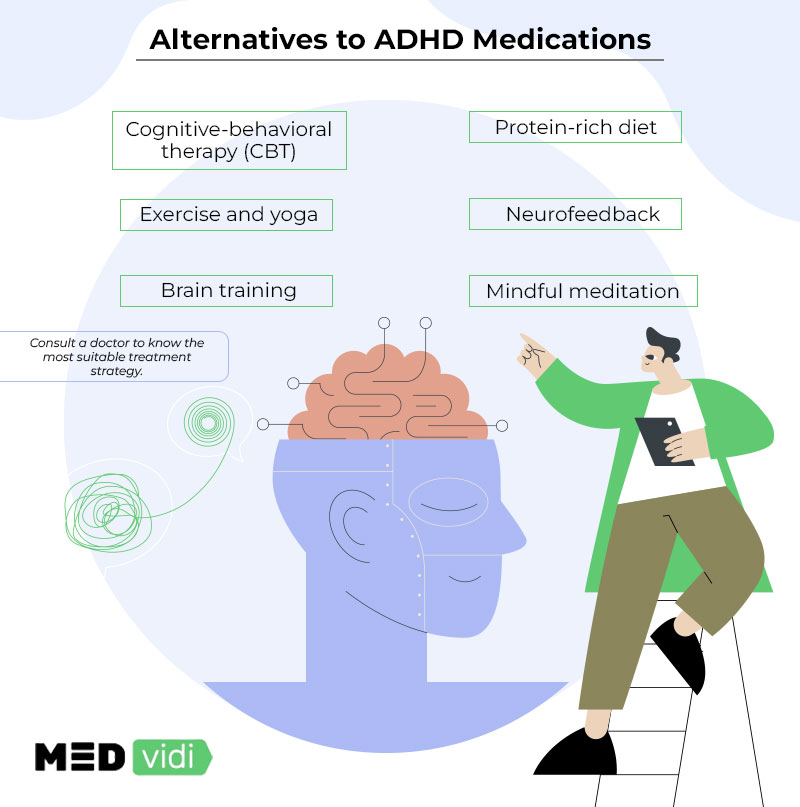Checking Out Efficient ADHD Therapy Alternatives for All Ages
The complexities of Interest Deficit Hyperactivity Condition (ADHD) present one-of-a-kind challenges throughout different age teams, necessitating a comprehensive exploration of effective therapy options. A combination of behavioral therapies, pharmacological treatments, and way of life modifications has shown promise in resolving the varied demands of people with ADHD. However, the effectiveness of these methods can differ substantially based upon individual circumstances, raising important questions about tailored strategies. As we examine the range of treatment techniques readily available, it ends up being vital to consider not only their prompt effects but additionally their long-term implications for individuals and households.
Understanding ADHD and Its Impact
Attention-Deficit/Hyperactivity Problem (ADHD) is a neurodevelopmental condition characterized by consistent patterns of negligence, hyperactivity, and impulsivity that can considerably affect various elements of a person's life. It typically materializes in youth, although signs and symptoms can linger into the adult years. The core signs and symptoms of ADHD can disrupt educational efficiency, impede social communications, and complicate occupational undertakings.
People with ADHD frequently have problem with maintaining emphasis on jobs, arranging tasks, and following up on guidelines, which can bring about academic underachievement (Depression Treatment). In social contexts, impulsivity might result in difficulties in forming and sustaining connections, as people might disrupt conversations or make hasty choices without thinking about repercussions
Additionally, ADHD can co-occur with other mental health and wellness conditions, such as anxiousness and clinical depression, even more making complex medical diagnosis and treatment. The variability in sign presentation implies that ADHD can impact individuals in different ways, requiring a personalized approach to administration. Comprehending ADHD's multifaceted impact is crucial for developing efficient techniques that sustain people in browsing daily difficulties and accomplishing their potential. Comprehensive understanding of ADHD's nature and implications prepares for checking out suitable therapy options customized per person's requirements.
Behavioral Therapies for ADHD
Many behavior treatments have actually been developed to properly address the obstacles related to ADHD, concentrating on changing particular behaviors and fostering necessary abilities. Among one of the most acknowledged methods are cognitive-behavioral treatment (CBT), parent training, and social abilities training.
CBT aids people identify and alter negative thought patterns and actions, promoting a more positive overview and boosted self-regulation. This treatment typically consists of practical techniques for taking care of impulsivity and improving organization. Moms and dad training programs equip caregivers by furnishing them with methods to reinforce positive habits and set regular borders, which can be specifically valuable for children with ADHD.
Social skills training is an additional vital component, training individuals with ADHD how to connect effectively with peers - Depression Treatment. This technique typically includes role-playing and feedback to boost communication, participation, and dispute resolution abilities
Integrating these behavioral treatments into a detailed treatment plan can substantially boost functioning and lifestyle for individuals with ADHD. Eventually, the effectiveness of these therapies relies on tailored methods that consider the one-of-a-kind needs of everyone, consequently cultivating resilience and adaptability in life.
Drug Options Available
For numerous individuals with ADHD, medicine can play a considerable role in taking care of symptoms and enhancing total functioning. Both main groups of medicines prescribed for ADHD are stimulants and non-stimulants.
Stimulants, such as methylphenidate and amphetamine-based medicines, are the most frequently used therapies. These medications work by raising the degrees of natural chemicals, specifically dopamine and norepinephrine, in the brain, which assists boost attention and minimize impulsivity and hyperactivity. They usually produce fast results, making them a favored alternative for several people.

It is important for doctor to carry out a detailed evaluation to identify the most suitable medicine based upon individual requirements, clinical background, and possible negative effects. Regular follow-up and surveillance are also important to guarantee the performance of the chosen therapy and to make any kind of necessary adjustments.
Way Of Living Adjustments to Take Into Consideration
Taking care of ADHD successfully expands beyond medicine, as way of life adjustments can considerably boost general wellness and symptom control. Incorporating organized regimens is critical; constant timetables aid people with ADHD handle their time properly and minimize sensations of overwhelm.
Routine physical task is another crucial component. Exercise not just helps to enhance concentration yet additionally increases state of mind and lowers anxiety degrees. Tasks such as yoga or team sporting activities can be particularly valuable, promoting both fitness and social communication.
Nutrition also plays a critical function. Depression Treatment. A balanced diet regimen abundant in omega-3 fatty acids, entire grains, and lean proteins can add to improved emphasis and cognitive function. Limiting sugar and processed foods is suggested, as these can exacerbate hyperactivity and impulsivity
Sleep hygiene is vital for taking care of ADHD symptoms. Developing a regular sleep timetable and creating a relaxing setting can improve sleep high quality, bring about far better focus and emotional policy.
Alternative and Holistic Methods
Alternate and alternative techniques to ADHD treatment provide a diverse variety of options that match conventional techniques. These approaches usually focus on way of living adjustments, nutritional treatments, and healing methods that aim to boost total well-being while dealing with ADHD signs and symptoms.

Mindfulness and behavior modifications are additionally gaining grip as alternative interventions. Practices such as yoga exercise, reflection, and cognitive-behavioral treatment can grow self-regulation and improve attention. These techniques sustain psychological durability, which is especially beneficial for people with ADHD.
Organic supplements, such as ginkgo biloba and ginseng, are sometimes checked out; however, it is important to seek advice from health care specialists prior to integrating these into treatment click for info plans. While alternative and all natural methods can supply important assistance, they must ideally be made use of together with evidence-based therapies to achieve ideal outcomes for taking care of ADHD throughout all ages.
Verdict
In summary, effective ADHD therapy requires a comprehensive strategy that consists of behavior modifications, drug, lifestyle alterations, and holistic methods. Tailored interventions can substantially improve individuals' operating and lifestyle, while suitable drug makes certain ideal signs and symptom administration. Furthermore, adopting organized routines, taking part in routine exercise, and exercising mindfulness redirected here can enhance emotional policy and attention. This diverse approach highlights the relevance of personalized treatment in resolving the diverse needs of individuals with ADHD throughout every age teams.